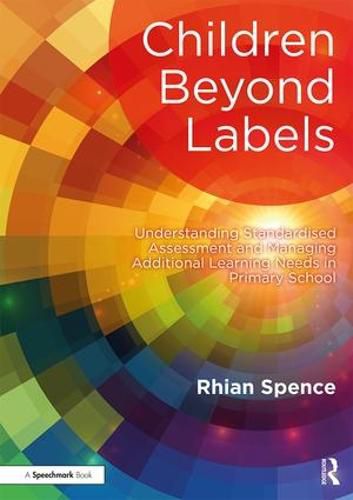Readings Newsletter
Become a Readings Member to make your shopping experience even easier.
Sign in or sign up for free!
You’re not far away from qualifying for FREE standard shipping within Australia
You’ve qualified for FREE standard shipping within Australia
The cart is loading…






Children Beyond Labels is an accessible guide to understanding standardised assessment and managing high incidence additional learning needs in the primary school. It offers jargon-free insight into the results of formal assessments which are often used within professional reports and cuts to the core of how primary education professionals and parents can identify, understand and best meet children’s needs.
Offering a range of practical and manageable strategies, the book provides clear explanations of commonly used labels which reflect three of the four areas described within the SEND Code of Practice (2015): Cognition and Learning; Communication and Interaction; and Social, Emotional and Mental Health. These categories are illustrated by 18 detailed case studies of children from the author’s own case work, each with their unique profiles of strengths, weaknesses and traits that can sometimes transcend category boundaries. Examples of these traits include:
Dyslexia
Autism Spectrum Disorder
Specific Language Impairment
Attention Deficit Hyperactivity Disorder
Developmental Co-ordination Difficulties
Anxiety.
This is an invaluable guide to the range of different types of additional learning or special needs of children who are likely to be found in mainstream primary schools. It will be of interest to primary teachers, trainee teachers, teaching assistants, SENCOs, parents and anyone working to support the needs of young children.
$9.00 standard shipping within Australia
FREE standard shipping within Australia for orders over $100.00
Express & International shipping calculated at checkout
Children Beyond Labels is an accessible guide to understanding standardised assessment and managing high incidence additional learning needs in the primary school. It offers jargon-free insight into the results of formal assessments which are often used within professional reports and cuts to the core of how primary education professionals and parents can identify, understand and best meet children’s needs.
Offering a range of practical and manageable strategies, the book provides clear explanations of commonly used labels which reflect three of the four areas described within the SEND Code of Practice (2015): Cognition and Learning; Communication and Interaction; and Social, Emotional and Mental Health. These categories are illustrated by 18 detailed case studies of children from the author’s own case work, each with their unique profiles of strengths, weaknesses and traits that can sometimes transcend category boundaries. Examples of these traits include:
Dyslexia
Autism Spectrum Disorder
Specific Language Impairment
Attention Deficit Hyperactivity Disorder
Developmental Co-ordination Difficulties
Anxiety.
This is an invaluable guide to the range of different types of additional learning or special needs of children who are likely to be found in mainstream primary schools. It will be of interest to primary teachers, trainee teachers, teaching assistants, SENCOs, parents and anyone working to support the needs of young children.